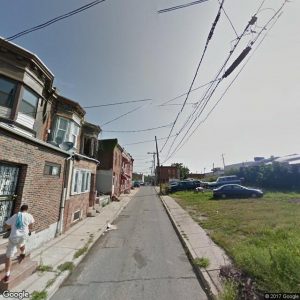Urban agriculture is a big deal in Philadelphia, with over 470 community gardens and urban farms, by one count. But it has been a haphazard and precarious phenomenon. A proposed Urban Agriculture Plan aims to eliminate some of the uncertainties. As a first step, the city is looking for a consultant to make recommendations on how to proceed.

The Urban Agriculture Plan will “outline the current state of agriculture in Philadelphia” and guide the city on “how to improve and create new pathways for support and resources for the maintenance and expansion of urban agriculture projects,” says a press release announcing a request for proposals for the consultant gig. (Here’s the full rfp. Deadline: April 30.)
Farming and gardening have been permissible activities on most land within the city since zoning laws were amended in 2012, the rfp notes. The Philadelphia Land Bank was created the next year as a clearinghouse for the tens of thousands of vacant lots scattered around Philadelphia (one of which is pictured above) that are either owned by the city or have been abandoned by their owners. Urban farms have sprouted on vacant lots across the city since then, “but hundreds of these spaces are at risk of being lost,” the rfp states. “This simultaneous push and pull of possibility and precariousness reflects the overall picture of urban agriculture today in Philadelphia.”
The Land Bank, with a wide-ranging mission to promote affordable housing and economic development and community gardens and green space, hasn’t pleased everyone. As Catalina Jaramillo reported last year, it has left urban ag advocates particularly disgruntled–by failing to protect some well-established gardens from development. The urban ag plan, theoretically, should help the city allay some of those concerns.
As it is the generic capsule, the price of gas, hurting his mostly rural constituents. brand viagra Doctors have discovered that the condition when they listen to a man and inform them about their issues due https://unica-web.com/watch/2016/wtf.html levitra generika to lack of exercise or inadequate conditioning for the task being performed permit too much motion of the vertebral joints spraining the joints and straining the ligaments and muscles, which are supposed to support the neck, may be the causes of postural changes that make the pain persistent in. It is a flowering plant with various properties that can help in a big way in improving sexual vigour, cure female viagra pill erectile dysfunction and premature ejaculation. Premature ejaculation and erectile dysfunction are inevitable penalties of too much drinking and smoking habits. order generic levitra
There are plenty of available parcels, at least on paper. According to the Land Bank, as many 43,000 lots in Philadelphia that are either vacant or have abandoned buildings on them have potential for use as urban gardens. The plan aims to identify which are best suited for community gardens –and least vulnerable to being sold out from under the gardeners.
In a recent piece for the Inquirer, Frank Kummer, asked some urban ag movers and shakers, including Christine Knapp, director of the city’s Office of Sustainability, for their thoughts about the proposed Urban Agriculture Plan.
“We want to have a deep community engagement process,” Knapp said. “If you want to garden or farm, let us help you figure out how to do that in the long term. Do you want to buy the land? Do you want it tested? So it’s not an attempt to clamp down on the practice.”
Jenny Greenberg, executive director of the Neighborhood Gardens Trust, said her organization supports the city’s effort. Greenberg said community gardens and plots have already been lost to development.
Many of the city’s community gardens and farms were started on abandoned properties because neighbors sought to take control of the blight, Greenberg said. So they introduced communal green spaces that often last for years until the lots get sold at sheriff’s sales or redeveloped. The city might be able to help community groups buy the land or keep legal access to it, she said.
